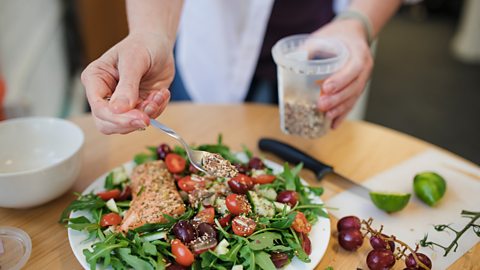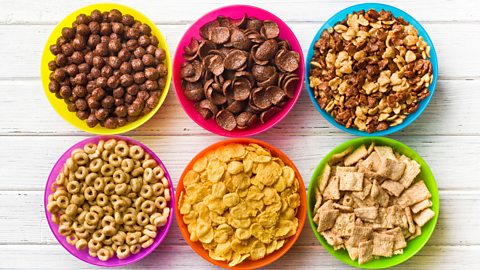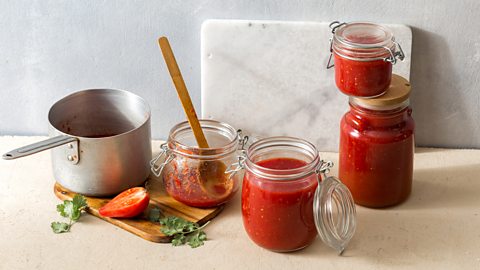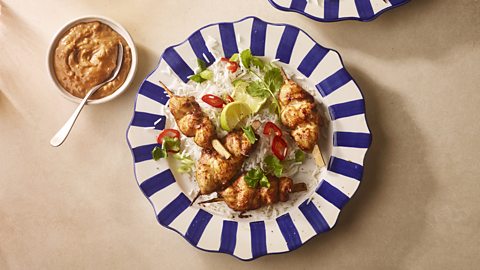“Alexa/Siri/Google: how do I boil an egg?”
It’s the cooking question thousands of people ask the internet every day. Why do we feel so insecure about such a simple technique?

You can whip up a smooth cheese sauce, cook a stir fry without a recipe, and even make your own sausage rolls from time to time.
It’s fair to say you’re a dab hand in the kitchen. And yet you might be nervous when it comes to the simple act of boiling an egg. As you stand over the pan, you fret: will the whites be snotty at the edges? Or will the yolk be too hard to dip your soldiers in? What if it cracks?
You furiously type into a search engine ‘how to boil an egg’ and are greeted with 432,000,000 responses (seriously, check - there’s that many results). Great. That clears that one up. Don’t worry you aren’t alone. It’s the most commonly searched for egg question - over 60,000 searches a month.
The more you think about it, the more variables there are to getting a boiled egg predictably perfect. Should the egg be straight from the fridge or at room temperature? Should it go in boiling water or cold? Should you simmer or turn the hob off? Does size matter? Here’s our foolproof method, together with eggspert advice (sorry) on your other egg-related questions.
How to boil an egg
As cooking skills go, it should be so simple: one ingredient plus a pan of water. But there are many differing opinions, and many methods that do the job well enough. There's even a scientific formula for calculating the time to boil an egg, based on the mass and temperature of the egg, with high-altitude variations, but it's erm, even more complicated.
We asked you all on Twitter and Facebook and received hundreds of replies, many of them quite different. Let's just say that our method isn't better than the one you know you can rely on, but we do feel that it's the most reliable way of reducing variable results for those people who feel they need to search on the internet for instructions.
How to boil eggs
- Begin with room temperature large eggs (this will help stop the shell cracking)
- Slowly lower the egg into a pan of gently boiling water
- Simmer until cooked to your liking - boiling vigorously may crack the egg as it bounces around
- How long to boil eggs?
- 5 minutes: Runny, suitable for dippy eggs, but no snotty whites
- 6 minutes: Jammy, still fairly liquid inside
- 7 minutes: Fudgy, firm but with definite squidge, ok for egg mayo
- 10 minutes: Well-hard
- Remove from the water with a slotted spoon. Eat or cool under water to eat later. It’s that easy.
If your eggs are fridge-cold, and you don't mind the risk of cracking, these times will still be more or less correct. Lowering the eggs slowly into the simmering water seems to help avoid cracking, but a lot depends on the strength of the shell which depends on what the chickens were eating.
If you are using medium-sized eggs, you may err on the side of caution when hard-boiling and shave off a minute. A green ring will form around the yolk of an overcooked egg and it will smell distinctively "eggy".
If you are cooking hard-boiled eggs that will be reheated later (as in a raised pie, Scotch egg or Nadiya's meatloaf roll), then cook for only 8 minutes.
Related articles
Boiled eggs are just the beginning

The boiled egg, not limited to dipping at breakfast time, is just the starting point for many recipes. For a few years, no Instagram-worthy Buddha bowl or ramen was unadorned by a halved, soft-boiled egg, its gleaming golden eyes gazing at you. A 5 or 6-minute egg can be immediately cooled under running cold water, and/or soaked in cold water for 10 minutes, before popping into a lunchbox to bling up your packed lunch salad. Soft-boiled or hard-boiled eggs will keep in the fridge for 3 days, so you can make a batch for successive lunches. Upgrade your boiled egg by marinating it in soy sauce, for salty, brown soy eggs.
The hard-boiled egg (8-10 minutes) makes the perfect egg mayo sandwich or sturdily tops a classic Niçoise salad. For Nigella's retro devilled eggs, she takes no risks of having a green ring round the yolks, and lets the eggs cook off the heat - another method that is popular, but not so with our impatient BBC Food team.
But her genius tip for those symmetry-obsessed cooks: "In order to help keep the yolk centred as the eggs cook, leave them lying on their sides in a dish (rather than sitting upright in their boxes) overnight before cooking them. It’s not a fail-safe guarantee, but it does seem to make a difference."
Are eggs likely to give you food poisoning?
Back in the late ‘80s, sales of eggs plummeted when there were fears raised about the risk of contracting salmonella from them. Thankfully those days are long gone, and now most eggs sold in the UK are now stamped with the British Lion mark, something which shows that the hens which laid the egg have been vaccinated against salmonella.
Professor Ian Dunn, from The University of Edinburgh’s Roslin Institute has carried out extensive research into chickens and eggs: “For sure, eggs are very safe to eat in the UK, because of the tracking and testing systems which makes salmonella pretty much a distant memory,” he says.
This is only the case with hen's eggs which have the British Lion mark, and doesn't apply to goose, duck or quail's eggs. These should always be well-cooked if anyone eating them is particularly vulnerable to food poisoning.
Eggs will last for up to 28 days after laying. “The contents of eggs are generally sterile if not damaged due to their antimicrobial qualities. I can’t think of such a high-quality protein source that lasts so long without preservation,” says Dunn.
Will eggs float if they are off?
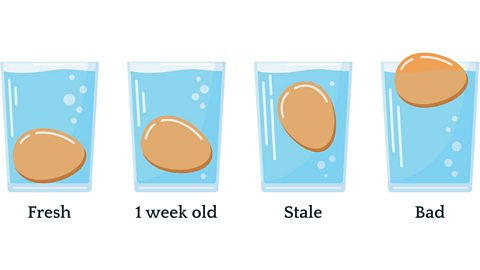
Ever reached for a pint glass of water to see if an egg will sink (fine) or float (off), but not sure if it’s just a baseless myth? The good news is that does work. Andrew Joret Chairman of the British Egg Industry Council (BEIC) explains: “All British Lion eggs have a best before date printed on the eggshell to ensure freshness. However, one simple test of an egg’s freshness is to place an egg in water. Generally, if the egg is stale it will float and, if it sinks, it is fresh. This is because as the egg gets older, the size of the air sac increases, making the egg float.”
Should you keep your eggs in the fridge?
Yes, if possible! Joret says: “Eggs should be stored at a constant temperature below 20°C - this maintains freshness and quality. The fridge is the best place to keep them, which avoids the temperature fluctuations you get in domestic kitchens, for example when you are cooking.”
That said if there’s no room in the fridge, there’s no need to throw them out: “Many of our eggs are literally in the shops within a day. That said eggs are evolved to sit for 3 weeks under a chicken at body temperature so pretty perfect antimicrobial defence,” says Prof. Dunn.
Are eggs healthy and how many calories are in them?
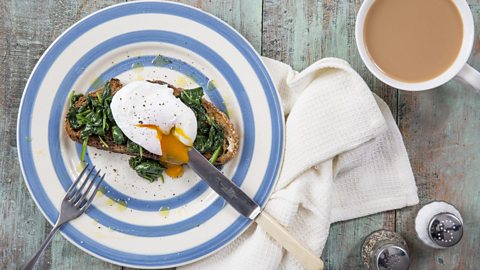
They are packed full of protein, vitamins and minerals, and in terms of calories, they range between 55-80 calories depending on the size. If you scramble or fry your eggs, then obviously the number of calories will increase depending on what you add/what oil you use.
If you are trying to reduce your cholesterol levels then you may have heard you should avoid eggs, but the NHS explains that rather than reducing ingredients which naturally contain cholesterol (such as eggs), you’re better off reducing the amount of saturated fat you consume.
Why are American eggshells white and not brown?
That’s simply down to the breed of hen. “Up until the early 1970s, white eggs were also popular in the UK,” says Joret. Before adding: “However, during the late 1970s the number of white eggs began to diminish as consumers expressed a preference for brown eggs. There is no nutritional difference between white and brown shelled eggs.”
If there’s chicken poo on the shell, should you wash an egg before storing it?
It’s always a bit discouraging when you see some suspiciously brown mess on an egg, but don’t stick them under the tap. Joret says: “This is not something to be concerned by and we’d advise against cleaning it off before storing in the fridge because eggshells are porous so washing them risks contaminating the egg.
Originally published March 2022
